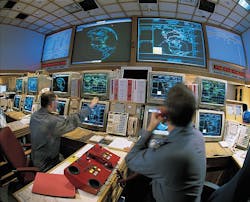Prospects for a revitalized U.S. military
President-elect Donald Trump has vowed to increase defense spending in an effort to revitalize the U.S. military and defense industry. Most likely Trump can count on a new Republican-led Congress to support his pro-defense efforts. There's optimism in Washington for a more military-friendly U.S. government than we've seen perhaps since the 1980s and Ronald Reagan.
After what the military has seen over the past eight years, this is heady stuff.
As the new year dawns, however, I'd like to offer some thoughts that might temper optimism. First, the new president and Congress will have to find the money if they're serious about revitalizing the military. That might happen, and it might not. It will be harder than it looks.
The last serious military buildup we saw was 15 years ago after 9/11. Absent such a catalyst I'd be surprised to see major defense initiatives over the next 18 months, at least. The Pentagon has seen flat or shrinking budgets for years, a hollowing-out of the officer corps senior leadership, and social departures from traditional military values. In an environment such as this, those desperate for a new direction likely will latch onto about anything different for encouragement.
As far as substantial, meaningful change in the U.S. military that might lead to a revitalized defense force, I'm skeptical, yet hopeful. I said I'd be surprised to see big and immediate change in the Pentagon. I'm hoping to be surprised.
There is reason for hope. Incoming Defense Secretary James Mattis is an unabashed champion of the military. The global threat of international terrorism is growing, and Chinese aggression in the South China Sea all are reasons for more muscular defense budgets and defense policies.
It all comes down to the will of President Trump and Congress to follow through on promises for a new era at the Pentagon. Are those promises real, or do they represent political posturing during a hard-fought election? Real change will involve a lot of time-consuming and hard work. Entrenched interests must be overcome, and opponents of a new day for the military are determined.
I don't think we'll have answers to these answers within a few months, but I think we'll have some indications. Will Trump make some unexpected changes to the upcoming fiscal 2018 military budget request, or will he let things ride? Will he make any big controversial moves like recommending cancellation or cutbacks in the F-35 joint strike fighter or other big weapon systems? Might we see new initiatives in missile defense, cyber security, naval power? If something like that happens we'll get the idea that Trump means business.
Until then, I offer thoughts of guarded optimism for a new military direction this early January 2017.
Learn more: search the Aerospace & Defense Buyer's Guide for companies, new products, press releases, and videos
